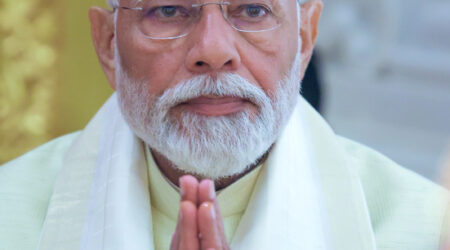The author Malcolm Gladwell popularized the 10,000-hour rule, which states that it takes 10,000 hours of intensive practice to master a complex skill. If you practice the guitar for 10,000 hours, you’ll be ready to join a band. If you practice writing for 10,000 hours, you’ll be ready to publish a novel. And if you practice acting for 10,000 hours, you’ll be ready to wait tables in LA.
The number 10,000 shows up in other areas too. For example, fitness tracking devices have convinced people that taking 10,000 steps a day can make a big difference in their health and longevity. But as New York Times writer Gretchen Reynolds has noted, the 10,000 figure has no scientific basis.
Walking 10,000 steps a day is equal to about 5 miles (8 km), but several studies have shown that you don’t have to walk that long to enjoy significant benefits. A study involving almost 5,000 middle-aged participants found that taking 8,000 steps a day makes you half as likely to die prematurely as taking 4,000 steps a day (but twice as likely to get foot blisters).
Reynolds attributes the 10,000 figure to a Japanese clockmaker who mass-produced a pedometer with a name that translated to “10,000-steps meter.” He didn’t call it an “8,000-steps meter,” because he knew that consumers would have more affinity for the number 10,000.
For similar reasons, Gladwell did not publicize the 9,000-hour rule or the 8,500-hour rule. He knew that 10,000 was a figure that everyone would love. He sold a lot of books, but he’s the one that I blame for the world being deprived of Billie Eilish’s songs until she turned 13.

Our love for some numbers—to the detriment of others—has always fascinated me.
My sister, Irene, and brother-in-law, Santosh, celebrated their 25th wedding anniversary in 2014. It was a very significant anniversary, and like many couples who are lucky enough to reach the milestone, they had a big party to mark the occasion.
Did they celebrate their 30th anniversary in 2019 with as much excitement?
Nope. The 30th anniversary, by tradition, isn’t quite as significant as the 25th and neither are the 35th and 40th. When they reach their 50th anniversary in 2039, however, they will be showered with congratulatory messages from all seven continents, as well as the human settlement on Mars.
The 25th anniversary is bigger than the 20th anniversary because we like to divide one of our favorite numbers, 100, by four, not five. We love the number four. It’s the number of years we usually spend in college to earn a degree, the number of seasons in a year, the number of weeks in a month. Four is the number of grand slam tournaments in tennis and major championships in golf. It’s also the number of years we have to wait between Olympic Games, World Cups, and Charlie Sheen marriages.
Another number we love is seven, perhaps because it’s the number of days in a week and the number of dwarfs who helped Snow White. The National Basketball Association (NBA) and several other sports leagues follow a best-of-seven format in their playoff rounds. Seven is a lucky number for film director M. Night Shyamalan: The critics love every seventh movie he makes.
It goes without saying that we love the number 10 and its multiples. We feel a lot older when we turn 30 than when we turn 29, and not just because we were stuck on 29 for several years.
Perhaps our favorite number of all is 100. An NFL running back who rushes for 100 yards in a game gets far more acclaim than the poor guy who gains a mere 99. Nobody cares who is the fastest runner in the world over 90 meters or even 110 meters. You need to bolt for 100 meters to be the king.
It’s truly an honor to be in a list of 100, whether you’re a Top 100 tennis player, one of the “100 Most Influential People in the World” or the first 100 people to date Taylor Swift.












